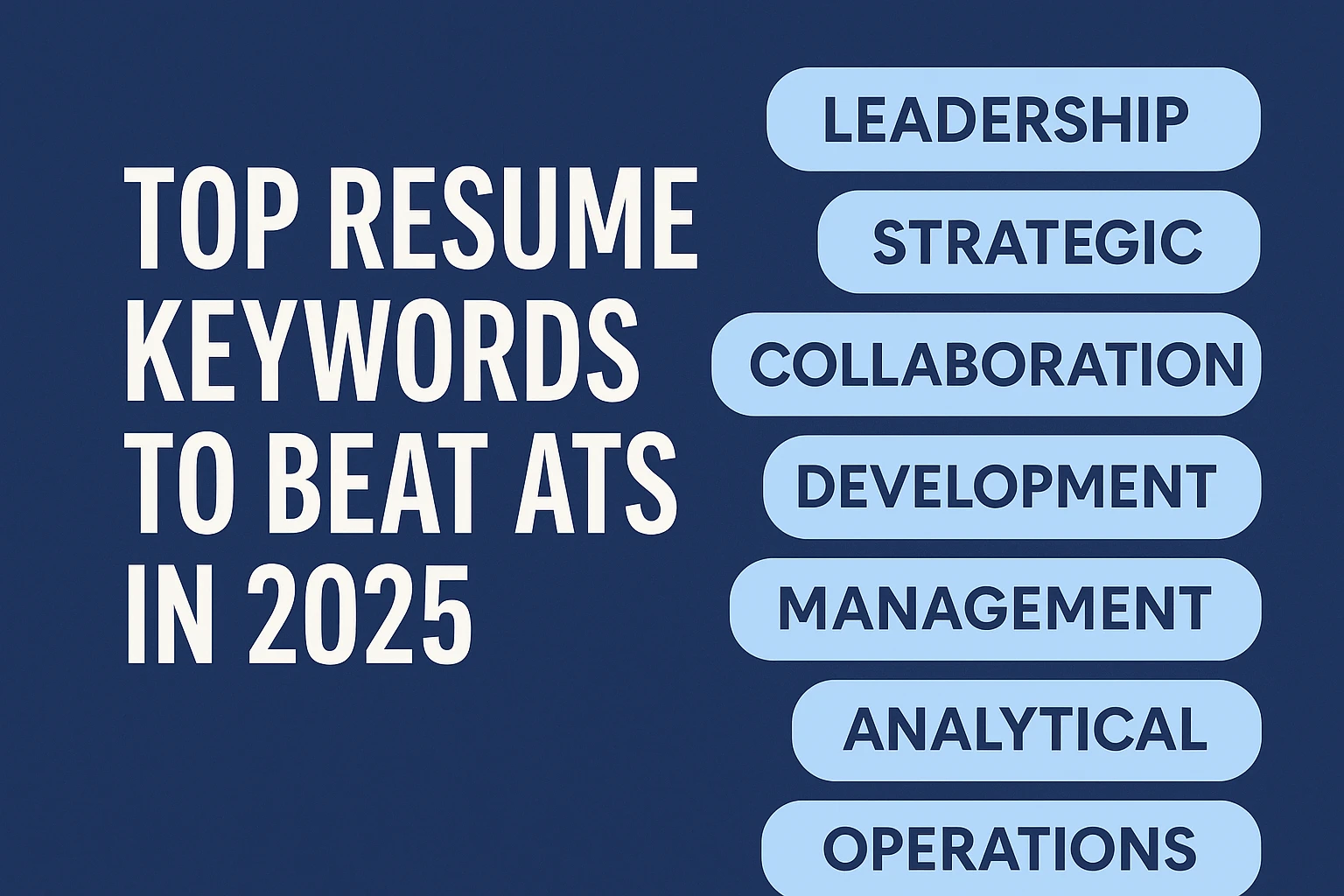
If you’re wondering why your resume isn’t getting responses, the issue might not be your experience—it could be your resume keywords. In the age of automated hiring, Applicant Tracking Systems (ATS) scan resumes for specific terms that match the job description. Miss those terms, and you’re invisible.
That’s why understanding the top resume keywords for beating ATS in 2025 is crucial for job seekers. And with tools like Jobcamp.ai, you can stop guessing and start optimizing.
This article will cover the keywords ATS bots love, how to find them for each job, and how AI helps you integrate them naturally into your resume.
Resume keywords are specific words or phrases in a job description that hiring software is trained to look for. These often include:
ATS tools match these keywords to what’s in your resume. No match? No interview.
Modern ATS tools don’t just count keyword frequency—they evaluate context and placement. That means:
That’s where AI helps—by blending keywords naturally.
Use the job description as your cheat sheet:
Then, use Jobcamp.ai to:
Job post says:
“Looking for a candidate with experience in cross-functional collaboration, KPI tracking, and agile development.”
Original resume:
“Worked with different teams to deliver results.”
Optimized with Jobcamp.ai:
“Led cross-functional collaboration across product and engineering teams, aligning KPIs to agile development milestones.”
Same meaning—stronger alignment.
Beating ATS isn’t about cramming your resume with buzzwords. It’s about speaking the same language as the job description.
With the help of tools like Jobcamp.ai, you don’t need to guess what keywords to use or where to put them. The system scans, suggests, and rewrites in seconds.
In 2025, smart keyword use is the difference between getting ghosted and getting interviews.
Q: What are the most important keywords for resumes in 2025?
A: It depends on your industry, but phrases like “cross-functional collaboration,” “data-driven decisions,” and “project lifecycle” are widely used. Use Jobcamp.ai to identify the best ones for each job.
Q: How many keywords should a resume have?
A: Aim for 15–30 relevant terms per job listing. Jobcamp.ai tracks this for you.
Q: Can AI really help with keyword optimization?
A: Yes—AI tools like Jobcamp scan the job post, identify gaps in your resume, and suggest keyword improvements.
Q: Where should keywords go in my resume?
A: In the Summary, Skills, and Work Experience sections. Jobcamp.ai auto-places them where they matter most.
Q: Can using the wrong keywords hurt my chances?
A: Yes. Irrelevant or forced keywords can lower your ATS score. Jobcamp ensures the right keywords are added naturally.
Join thousands of job seekers who receive our weekly newsletter with insider tips, trends, and opportunities.